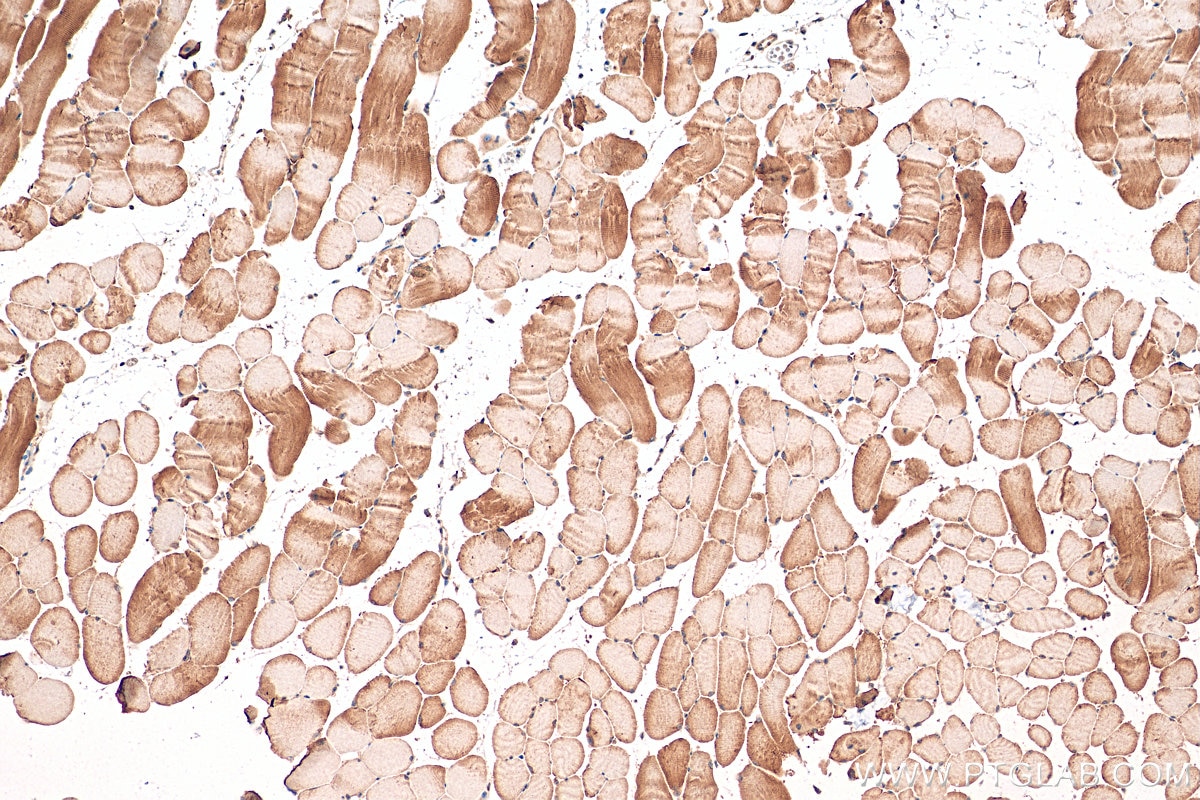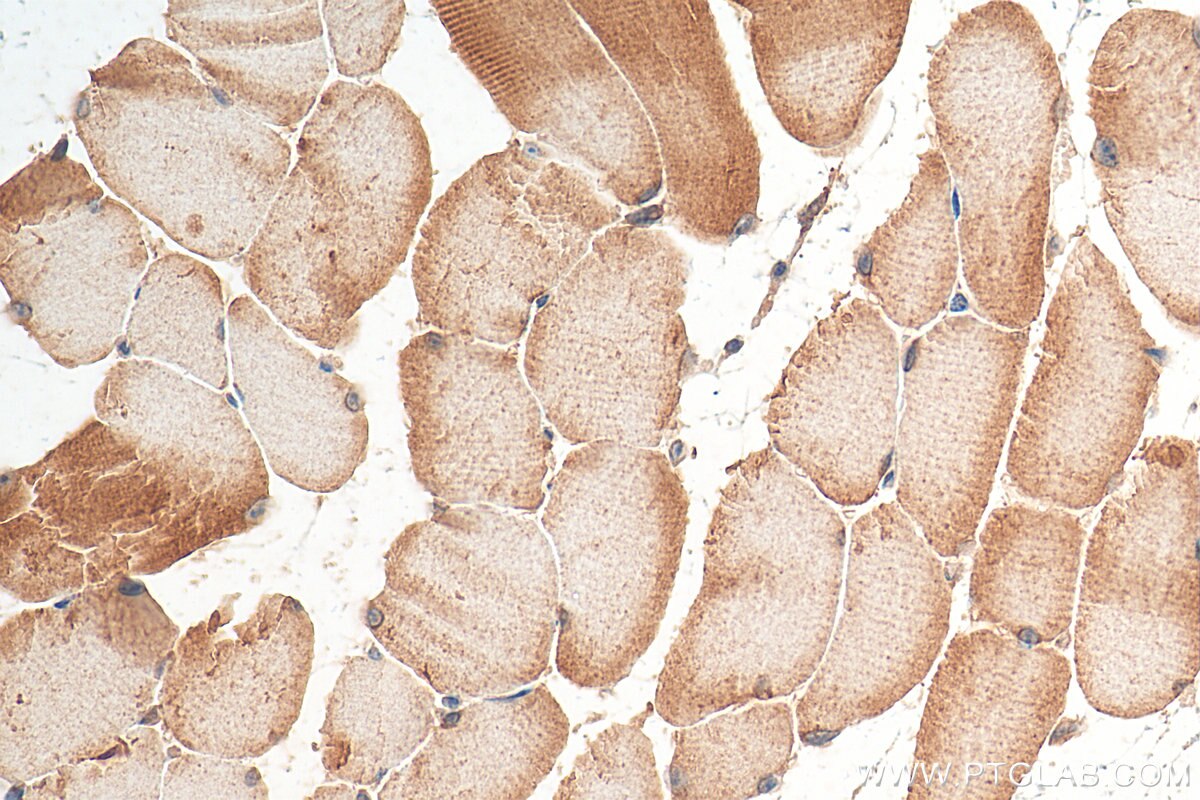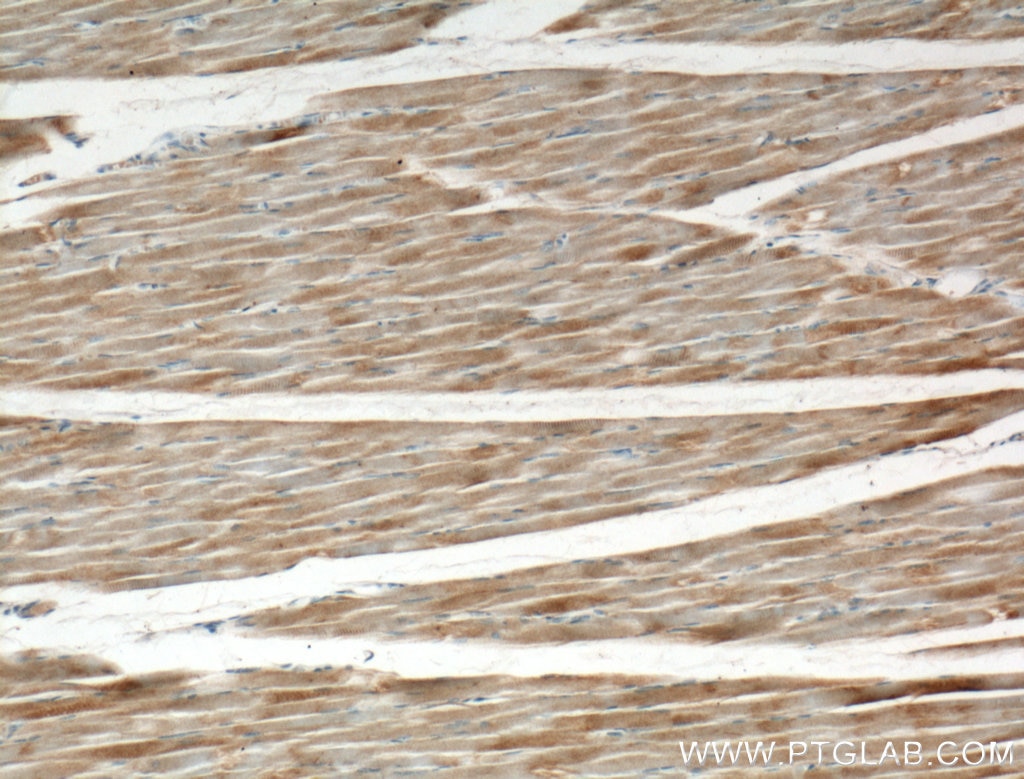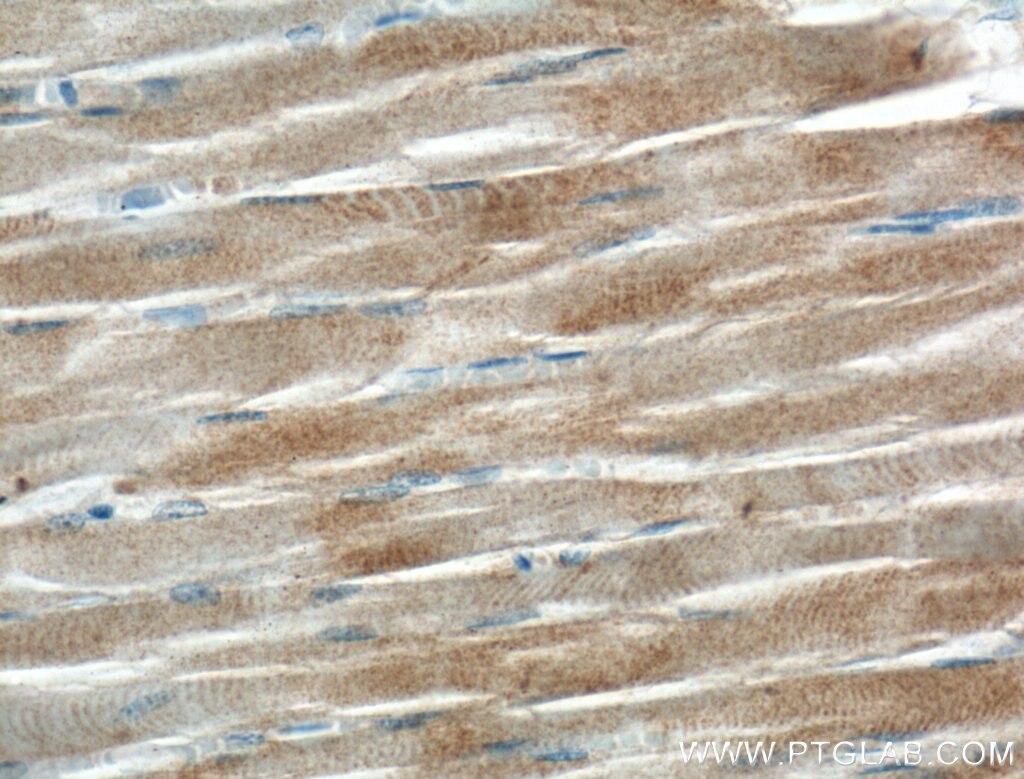Tested Applications
| Positive WB detected in | mouse skeletal muscle tissue |
| Positive IHC detected in | mouse skeletal muscle tissue, human skeletal muscle tissue Note: suggested antigen retrieval with TE buffer pH 9.0; (*) Alternatively, antigen retrieval may be performed with citrate buffer pH 6.0 |
Recommended dilution
| Application | Dilution |
|---|---|
| Western Blot (WB) | WB : 1:500-1:1000 |
| Immunohistochemistry (IHC) | IHC : 1:50-1:500 |
| It is recommended that this reagent should be titrated in each testing system to obtain optimal results. | |
| Sample-dependent, Check data in validation data gallery. | |
Product Information
21836-1-AP targets KBTBD5 in WB, IHC, ELISA applications and shows reactivity with human, mouse samples.
| Tested Reactivity | human, mouse |
| Host / Isotype | Rabbit / IgG |
| Class | Polyclonal |
| Type | Antibody |
| Immunogen | KBTBD5 fusion protein Ag16430 Predict reactive species |
| Full Name | kelch repeat and BTB (POZ) domain containing 5 |
| Calculated Molecular Weight | 621 aa, 69 kDa |
| Observed Molecular Weight | 69 kDa |
| GenBank Accession Number | BC110491 |
| Gene Symbol | KBTBD5 |
| Gene ID (NCBI) | 131377 |
| RRID | AB_2878923 |
| Conjugate | Unconjugated |
| Form | Liquid |
| Purification Method | Antigen affinity purification |
| UNIPROT ID | Q2TBA0 |
| Storage Buffer | PBS with 0.02% sodium azide and 50% glycerol , pH 7.3 |
| Storage Conditions | Store at -20°C. Stable for one year after shipment. Aliquoting is unnecessary for -20oC storage. 20ul sizes contain 0.1% BSA. |
Background Information
KBTBD5, also known as KLHL40 and SRYP, contains a BACK domain, a BTB/POZ domain and 5 Kelch repeats. It is expressed predominantly in skeletal muscle. The KLHL40 gene mutation is responsible for a severe and potentially fatal neuromyopathy (PMID: 38397198).
Protocols
| Product Specific Protocols | |
|---|---|
| WB protocol for KBTBD5 antibody 21836-1-AP | Download protocol |
| IHC protocol for KBTBD5 antibody 21836-1-AP | Download protocol |
| Standard Protocols | |
|---|---|
| Click here to view our Standard Protocols |











